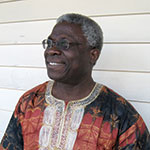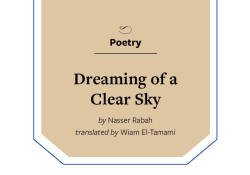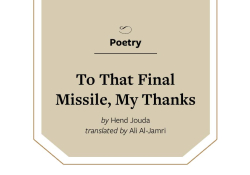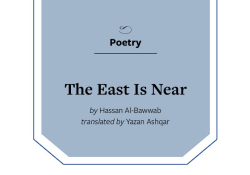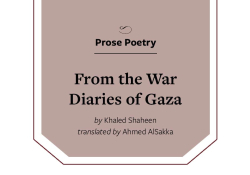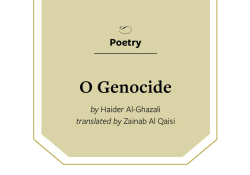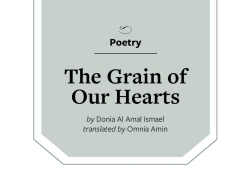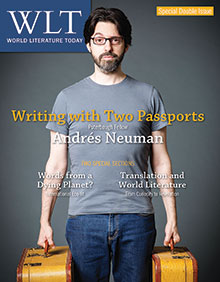Two Poems by Niyi Osundare
Wishes
Wish I could still laugh with the lotus
On the bank of the Nile
Take off my clothes
And dive into the Zambezi
Join spirit dancers
In the middle of the Ganges
Romp with the Rio
To the thunder of the samba
Fan the Yangtze’s face
With the fan of the moon
Tease the Thames
With a shoeless foot
Embrace the Volga
With open arms
Ask the Mississippi
For a bowl of water . . .
Alas, between cup and lip
An acre of wishes
Hole in the Sky
(Choreo-poem. Preferably with musical accompaniment, the tempo varying according to the mood and meaning of each section)
Eco-Snaps
i
Koko gbakokodi
Koko didikokodi*
“Tell my story,”
Said the Earth to me,
“Oh, tell my story the way it is.
Don’t sugarcoat its bile
Don’t varnish its rust
Don’t cover its scars with pretty words
Tell my pain the way it is
The way it is
The way the way the way it is
Tell my pain, the way it is.”
Koko gbakokodi
Koko didikokodi
ii
The day the river caught fire
And the lake burnt like Devil’s oil
The mountain coughed like a broken giant
The sky’s eyes were red with grief . . .
Plants whose lethal spills provoked the plague
Lay fortressed behind the hills
Ayekooto† sighted their owners
On their way to the city bank
Koko gba kokodi
iii
Ever heard fruits arguing between the leaves
Over which got the deepest dose
Of the pesticidal plague?
The poison killed the pest
And later buried the people
Koko gba kokodi
iv
The thunder of the sea
Rattles the silence of the sky
Wailing whales wonder about their woes
The deeper the dolphin dives
The shallower its desired relief
Koko gba kokodi
v
The desert marches towards the sea
The desert marches towards the sea
Fire in its eyes
Mayhem in every movement
The desert marches towards the sea
With camel-loads of broken skulls,
Roasting iroko‡ trees for lunch
The mahogany for early dinner.
Dandelions roar beneath its feet.
The elephant grass has lost its tusks
To the famished poacher from sandy regions
The desert marches towards the sea
Alas, the boundless rainforest of my youth
Has shrunk to a frightened eyebrow
On the forehead of the coast
Koko gba kokodi
vi
The midday sun
Cannot see its face in the lake
The turquoise sea is yellow
From the poison of upland plants
The day they killed a tree
In the ancient forest
The chainsaw left a dirge
On the lips of the leaves
There is a bird in my heart
Craving for a perch on the absent tree.
Koko gba kokodi
vii
Seasons of omen:
One-legged frogs
Babies with missing arms
The grass’s green laughter
Has yellowed into sickening groan
Vengeful droughts digest the fields
Koko gba kokodi
viii
A hole
A hole
A blazing hole
In the garment of the sky
Oven-hot summers
Winters blind with ice
The Arctic melts like butter
As rising oceans consume the land
Fog-fraught cities grope
Beneath their fuming factories
The rain falls, acid,
On frightened forests
The Earth we used to know
Is once upon a time
A hole
A hole
A blazing, blinding hole
In the garment of the sky
Koko gba kokodi
ix
Trumpet sounds in the horizon
Green intimations unfurl the wind
Healing needle to the hole in the sky
Earth’s Redemption Army
Is gathering strength beyond the clouds.
Trumpet sounds behind the mountains
Green intimations unfurl the wind.
Koko gba kokodi
Koko didi kokodi
